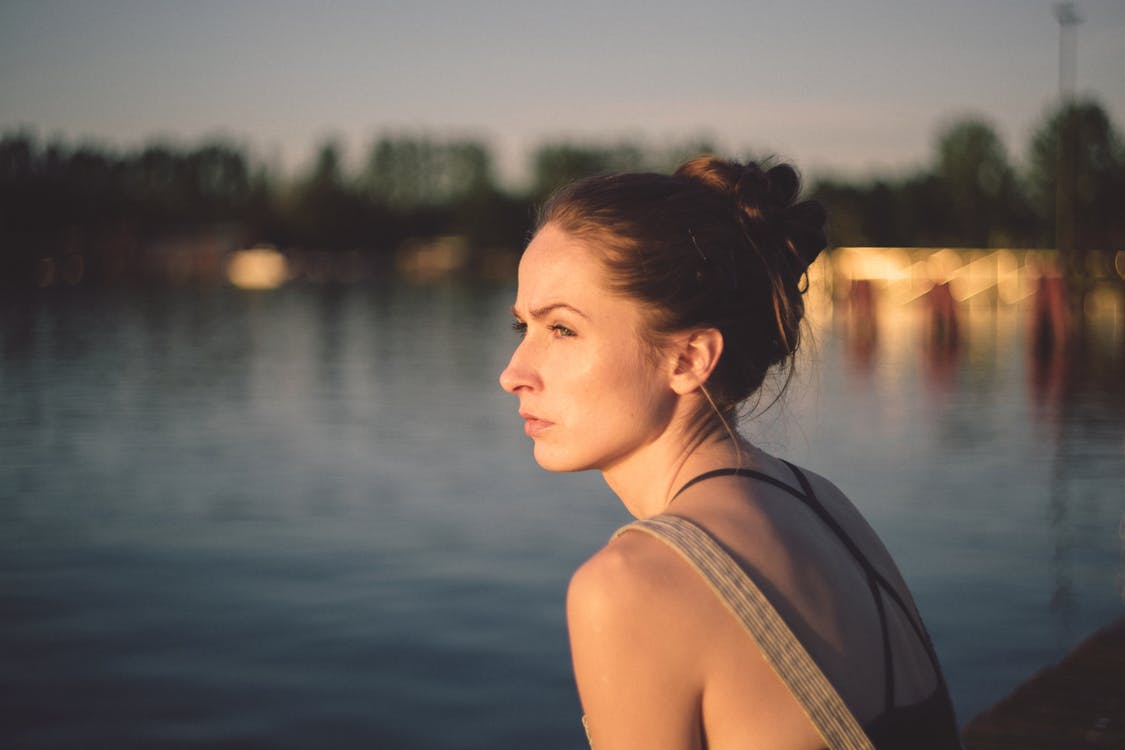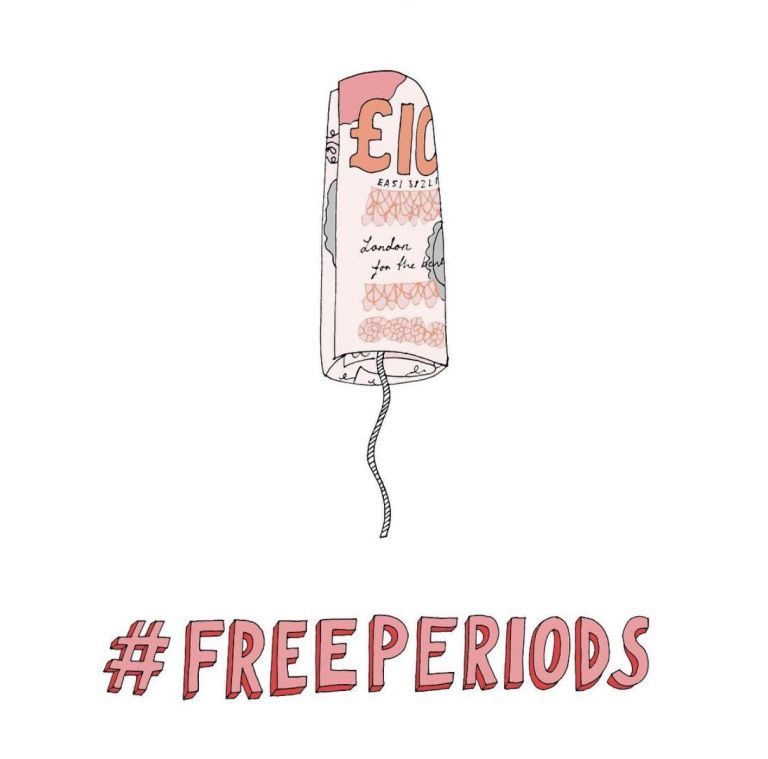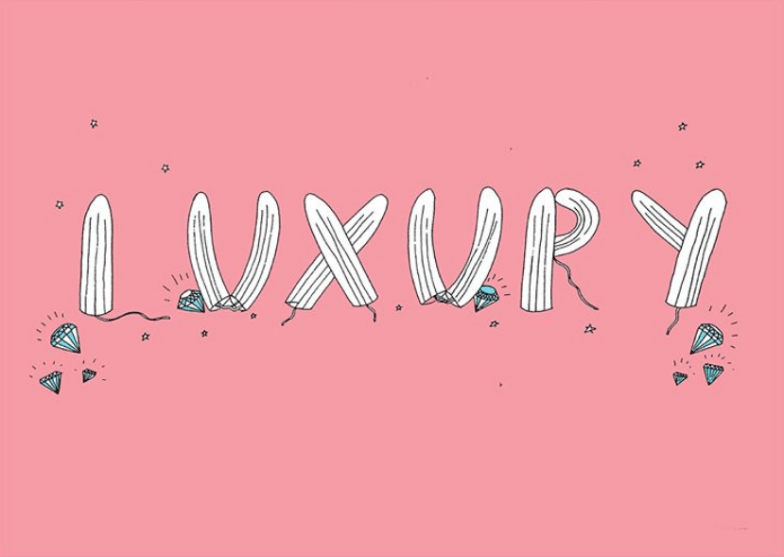A version of this article previously appeared on Ethical Unicorn.

Over the past few years, I’ve been thinking about periods a lot. This may be due to the fact that they come around once a month, making them hard to ignore, or the fact that how I dealt with my period was one of the first sustainable switches I ever made, meaning it comes up in conversation a whole lot. Either way, periods end up on my mind fairly regularly. In recent months, however, it seems like periods have also been working their way into the national conversation.
In 2017 I finally watched I, Daniel Blake after putting it off for a while. It’s set in my hometown, and I knew seeing real locations that I’d passed every day in my youth, knowing that fictional events portrayed there were only a fraction away from the reality, was going to hit me quite hard. What I didn’t expect was a scene involving periods to stay with me so strongly. In this scene, Katie, the film’s female lead, goes to a food bank but discovers they don’t have any donated menstrual products. With no other option, she turns to shoplifting in order to get some. As a woman, it’s upsetting to watch. We all know that feeling of desperation when our period appears unexpectedly, but many of us don’t know the feeling of not being able to immediately use something to keep it at bay.
Sadly, this isn’t a new story. Period poverty is defined as ‘women and girls struggling to pay for basic sanitary products on a monthly basis, with significant impact on their hygiene, health, and wellbeing’, and articles about the topic have been in circulation for a long time. More recently, it has become clear that girls who unable to afford menstrual products are routinely missing school each month while women in prisons are being deprived of menstrual products. It’s awful, but awareness is growing. Since late 2017, a petition has been circulating in the UK campaigning for the Government to provide free menstrual products to all children on free school meals, and on December 20th, protesters marched on parliament to demand change.
The thing is, there’s a solution to at least some of this problem that seems glaringly obvious, easy, and economically viable that I haven’t seen talked about all that much in mainstream media–Going sustainable.

Let’s look at the numbers:
“It isn’t hard to see why sanitary products are often out of reach. Research shows pads and tampons cost women around £13 every month. Add another £8 for new underwear, and then almost a fiver for pain relief. That means women need to find more than £300 each year for periods – or the equivalent of a fortnight’s rent.” (source)
If we just look at the cost of tampons and pads, we’re talking £13. Every. Month. That’s a significant amount of money, which can often result in a woman having to choose between meeting other basic needs like food and heating or hygiene. But do you know how much a menstrual cup, the sustainable reusable alternative, costs in the UK? It costs £19.99, and can last for years. There’s a lot of debate around just how long a cup will last with proper care, with some brands saying as long as ten years and some saying as short as two. Personally, I’ve been using mine for over two years now and it’s still in perfect condition. But even if a cup only lasted two years, the cost would lower to 83 pence per month. If it lasted for ten years, that goes down to 17 pence per month. That price difference is RIDICULOUS, and the Mooncup basically starts saving someone money from the second period cycle onwards. A menstrual cup only needs to be sterilized by being placed in boiling water for about 7 minutes, so as long as you have access to boiling water, you don’t need anything else.
As opposed to having to struggle to get money together every month for period products, once someone has a menstrual cup, that financial, mental and emotional burden can be alleviated for a significant period of time. And even if they can’t afford that one time payment themselves, if menstrual cups are donated to food banks, schools or prisons and handed out for free, then that individual is taken care of for much longer, as opposed to having to repeatedly return to the same place each month. From a sustainability standpoint, equipping people with menstrual cups would also do a huge service by preventing tens of thousands of tampons going to landfill, but this is simply a bonus that is added to the obvious financial benefits.
If you find yourself wondering why this solution hasn’t been implemented, I think it’s probably due to the same reason that many people who can afford sanitary care don’t use menstrual cups either. Education.
The fact is, large companies who make disposable sanitary products have much larger marketing budgets. Disposables have a huge monopoly on the market because women have been sold the lie that they are the only option, which isn’t true. Tampax, for example, is owned by the huge multi-national corporation Procter & Gamble while Mooncup is a small business based in Brighton with sixteen employees. While both are stocked in Boots, our major pharmacy, one clearly has a lot more money to flush into advertising than the other. Awareness levels are changing these days, thanks to the internet and the growth of sustainability and zero waste movements online, but I also think it’s down to organizations and our government to seek out and implement these incredibly useful solutions, as well as supporting education around how to use them.
It’s true, Mooncups can be intimidating. The company itself says it takes around three cycles to fully get used to a cup, and of course, the non-stop advertising of tampons and pads makes the disposable options seem a lot more normal and non-scary than a cup. That being said, I’ve also never met someone who’s wanted to go back after getting the cup. I’ve seen the same cycle repeat countless times: woman recommends cup to a friend, friend gets cup and texts recommender in a panic as she struggles to get used to it, after a month or two she gets the hang of it and recommends it to her friend, that friends then texts her in a panic until she gets used to it. The word of mouth and cycle of recommendations and reassurance repeats and repeats, and menstrual cup use spreads among those of us who have the financial means to simply switch.
For those in a more difficult financial situation, I believe the best solution would be to provide menstrual cups alongside an education session, during which someone can explain how to use them and how to get used to them, whether this be in a classroom or run in conjunction with a food bank. Yes, it would take a little more time and money and would require some sort of infrastructure to be put into place, but surely the payoff would be larger, as each person would then be sorted from that point onwards for a much longer period of time. Hopefully, in a few years, they may be able to afford their own replacement cup, or if not the reliance on donations would be much more minimal than needing new products each month. We can already see the first examples of this working with the CupAware movement, and I would love to see this spread across organizations in the UK and US.

Continue reading on Ethical Unicorn.
Also by Francesca: More Than Eco-Friendly: Why Sustainable Style Is A Win For Body Positivity
Related: Save $$$, Help Earth *And* Yourself With These Genius Zero-Waste Period Essentials
I Tried It: Menstrual Cup + Benefits of Going Tampon Free!
Get more like this–sign up for our newsletter for exclusive inspirational content!
__
Photo: Pexels; Illustrations: Alice Skinner




